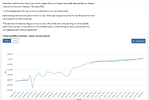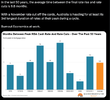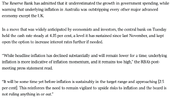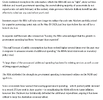- Joined
- 14 February 2005
- Posts
- 15,487
- Reactions
- 18,130
Without dwelling on the details of engineering in an economics thread, the energy industry is a great example of what's wrong with the Australian economy more broadly.The price of electricity did not come down, and there is nothing on the horizon that suggests it will come down in the future.
It's not about the method of generation (renewables, coal etc) and it's not about whether the companies are shareholder owned, privately owned or government owned. Those things have some relevance as such, but they're not the crux of the problem that the industry is simply bound up in entrenched inefficiency that no individual company or technology can escape.
That used to drive engineers and other technical people crazy until a realisation occurred that actually it's not just energy that has this problem, it being across much of the economy. Start talking to people in completely unrelated industries and that becomes clear, there's entrenched structural inefficiency all over the place.
I expect the RBA is all too aware of this and that would influence their thinking. Pick an industry, any industry, and there's entrenched inefficiency somewhere - the lack of a recession for the past third of a century has allowed a lot of dead wood to accumulate.










